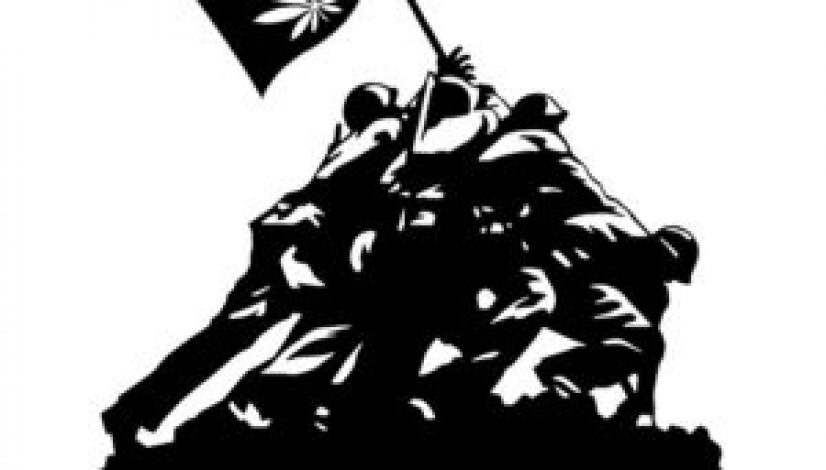The Unsettling Report From the U.S. Department of Veteran Affairs and What it Means
A recent report form the U.S. Department of Veteran Affairs is unsettling to say the least. The report shows that veterans represent 14% of all suicides in the country when they only make up 8% of the population. The data collected from the Centers for Disease Control and Prevention’s National Death Index also shows that male veterans are 1.3 times more likely to commit suicide than civilians and that female veterans are twice as likely. It is an incredibly sad statistic and unfortunately suicide rates are on the rise across the country in general.
 Mental disorders of all sorts contribute to suicide rates, but for veterans many of those disorders come from their time serving our country. Whether a veteran is suffering from PTSD, struggles with re-acclimating to life at home, or has suffered a major injury while serving that has changed their lives or led them to a dependency on opioids, they are all results of their time in service. Our military veterans are also victims of the opioid epidemic which has become an issue that is much farther complicated than it should be. Veterans are either not receiving enough medication from their doctors to treat their conditions or have developed a dependency that for many of them has proven to be irreversible. People across the country argue that marijuana legalization has already reduced the amount of overdose deaths related to prescription opioid-based drugs and believe it can help further.
Mental disorders of all sorts contribute to suicide rates, but for veterans many of those disorders come from their time serving our country. Whether a veteran is suffering from PTSD, struggles with re-acclimating to life at home, or has suffered a major injury while serving that has changed their lives or led them to a dependency on opioids, they are all results of their time in service. Our military veterans are also victims of the opioid epidemic which has become an issue that is much farther complicated than it should be. Veterans are either not receiving enough medication from their doctors to treat their conditions or have developed a dependency that for many of them has proven to be irreversible. People across the country argue that marijuana legalization has already reduced the amount of overdose deaths related to prescription opioid-based drugs and believe it can help further.
One group, Weed for Warriors out of Los Angeles, argues that cannabis has helped many military veterans re-acclimate to life at home and weaned them from a dependency on opioid-based drugs.
Weed For Warriors is an organization that has for the last few years advocated for the legal use of marijuana to help veterans with stress relief, pain control, help with introspection, as well as assistance coping with the negative feelings and emotions caused by being in combat. Their goal is to make cannabis accessible to veterans for any number of different reasons as well as to help them learn more about cannabis other than its reputation as a recreational drug.
Many of these veterans are often prescribed a cocktail of different medications to treat their issues, with some individuals taking upwards of a dozen different medications to do so. These cocktails can leave a person feeling like a drugged up zombie and can potentially lead to addiction issues and overdose cases, especially when it comes to mixing opioid based pain medication withanxiolytics, SSRI’s, and other commonly prescribed drugs.
 Rather than pumping our veterans full of prescription drugs that may not even help them at all or even make matters worse, Weed For Warriors is attempting to highlight these issues while at the same time advocating for cannabis use as an alternative form of treatment. Through their many initiatives, including peaceful protests in front of the VA that involved dumping thousands of pill bottles to raise awareness about theveteran suicide epidemic, the folks at Weed For Warriors are hopeful that they will be able to change healthcare for veterans.
Rather than pumping our veterans full of prescription drugs that may not even help them at all or even make matters worse, Weed For Warriors is attempting to highlight these issues while at the same time advocating for cannabis use as an alternative form of treatment. Through their many initiatives, including peaceful protests in front of the VA that involved dumping thousands of pill bottles to raise awareness about theveteran suicide epidemic, the folks at Weed For Warriors are hopeful that they will be able to change healthcare for veterans.
Despite the fact that the significant health benefits of cannabis have been part of medical knowledge for quite some time, Weed For Warriors continues to butt heads with the VA. Due to the fact that theDepartment of Veterans Affairs continues to disregard this information claiming that “there has not been enough time for conclusive evidence to be produced” about the positive effects of marijuana, this had lead many to think that their stance against allowing medicinal cannabis for veterans is purely a political one.
Despite the significant opposition from many arenas (political and otherwise), Weed for Warriors plans to keep “fighting the good fight” on behalf of U.S. veterans everywhere so that they are able to receive the properhealthcare and treatment that they both need and deserve. We are also hopeful that the Weed for Warriors Project will be successful in their endeavors through their activism at a national level and via their local initiatives for the many veteran communities around the country.
Tags
dependencyMarijuana Newsopioid epidemicptsdsuicidesU.S. Department of Veteran AffairsveteransWeed For Warriors


